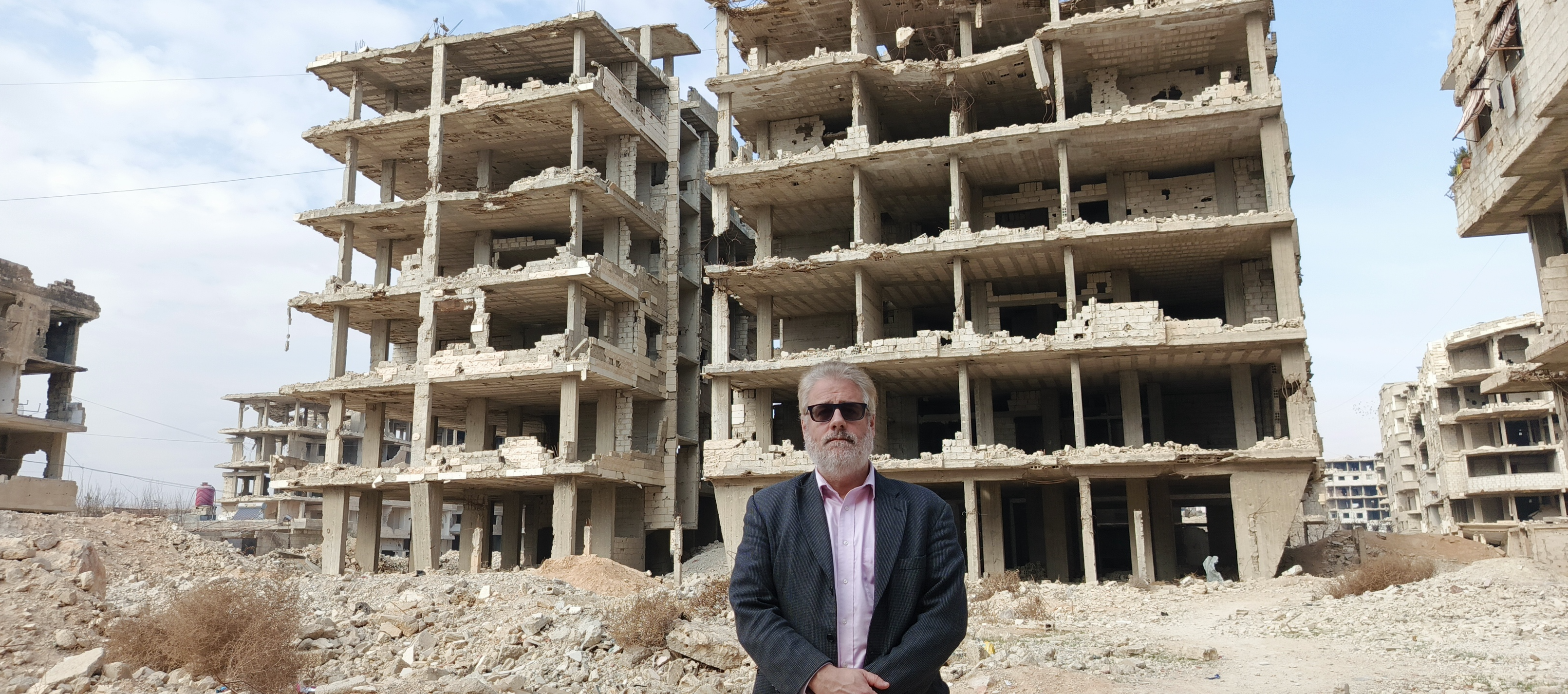
During her confirmation hearing for Director of National Intelligence, Tulsi Gabbard was grilled about having been a purveyor of “Putin’s talking points” about the U.S. supporting al-Qaeda in Syria.
Of course, Gabbard responded, there can be no doubt about the veracity of such claims.
Thus, Gabbard cited the fact that the CIA, beginning under President Barack Obama, carried out its most expensive regime-change program ever in Syria, termed “Operation Timber Sycamore”—a $1 billion-a-year program which included the arming and funding of terrorist groups like al-Qaeda and ISIS to undermine the government of Bashar al-Assad.
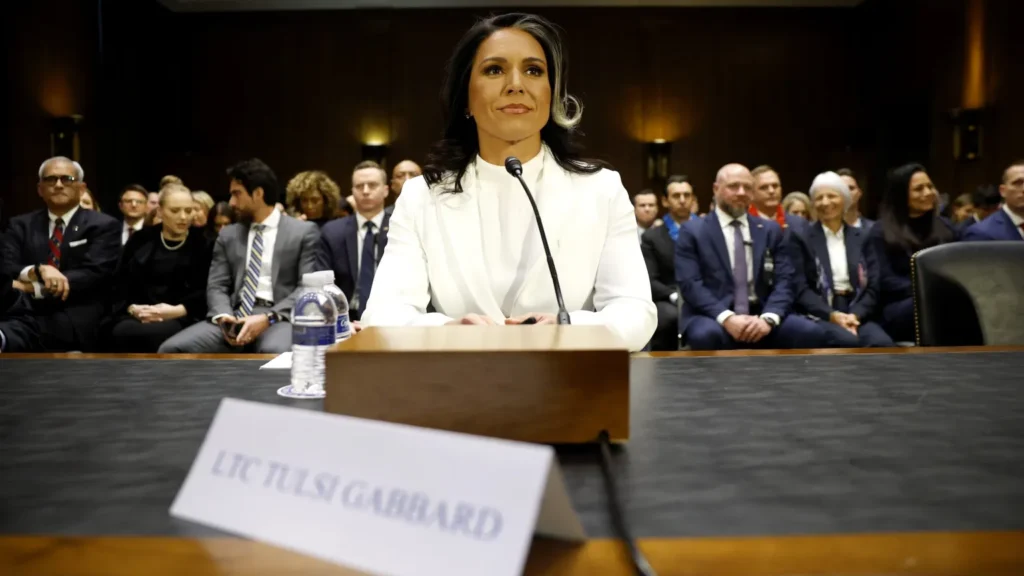
For his part, Seymour M. Hersh wrote in The New Yorker magazine in 2007 that the U.S. began supporting such groups in Syria back in 2005 under President George W. Bush.
Hersh’s article was entitled “The Redirection”–-the title referring to Bush’s having reversed course in having targeted al-Qaeda for destruction after 9/11 to supporting al-Qaeda to undermine governments, such as the one in Syria, which challenged U.S. hegemony in North Africa and West Asia.
In Syria, the U.S. has now reaped what it has sown, with the group Hayat Tahrir al-Sham (“HTS”)—an al-Qaeda offshoot—having come to power under the leadership of Ahmed Hussein al-Sharaa, whose nom de guerre as al-Qaeda chief was Abu Mohammad al-Julani.
Al-Julani, which I will call him hereinafter, has just declared himself president of Syria, scrapped the socially progressive Constitution of 2012, and has announced that there will be no elections forthcoming for at least four years and possibly five.
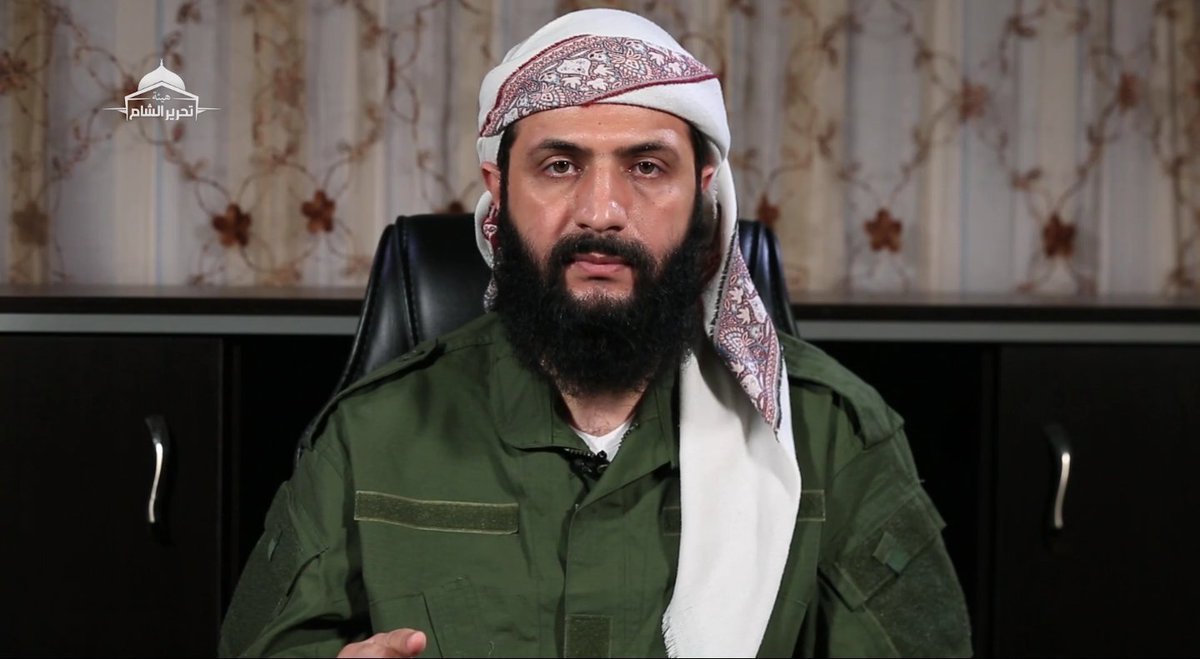
It appears that al-Julani and his HTS terrorists need this time to purge the country of certain groups to ensure that they will be successful in any election that will take place. And, indeed, al-Julani has alluded to this fact, having stated that the current violence against certain minority groups, such as Alawites and Christians—violence he initially tried to distance himself from—is “normal and may continue for two or three years.”
The town of Homs has become an epicenter of such violence. As The Cradle explains, “the western countryside of Homs has been gripped by a brutal security campaign marked by grave human rights violations, including field executions, looting, public humiliation, sectarian insults, and indiscriminate arrests. These atrocities were carried out by the interim government’s Military Operations Department under the pretext of searching for wanted individuals and seizing weapons, but the campaign swiftly descended into lawlessness.”
According to one of my friends in Homs, “We are not happy with our lives. Our lives have been turned upside down. No work. No security. Kidnapping. Killing everywhere. The biggest problem is that what is happening is based on hatred for Alawites. We are being killed because we are Alawites.”
The new regime in Damascus has also outlawed opposition parties, such as the Baath Party (the former governing party) as well as both Communist Parties of Syria. In addition, the new government moved quickly to take away arms from individuals and groups, including the Palestinian liberation organizations which the Assad government had allowed to operate freely in Syria.
For its part, the banned Syrian Communist Party put out a statement denouncing the new regime, writing in part:
Since seizing power in our homeland Syria on December 8, 2024, as a result of a military attack fully supported by colonial powers that are members of the aggressive NATO, the dark clique has begun to restrict the social rights of the people. Tens of thousands of workers in the state and public sector facilities have been laid off, with many of these facilities being liquidated, which has led to a worsening of the economic and social situation. In addition, discrimination between citizens on the basis of their beliefs and affiliations is escalating. Kidnappings and assassinations have taken place and are taking place, accompanied by theft, looting and extortion.
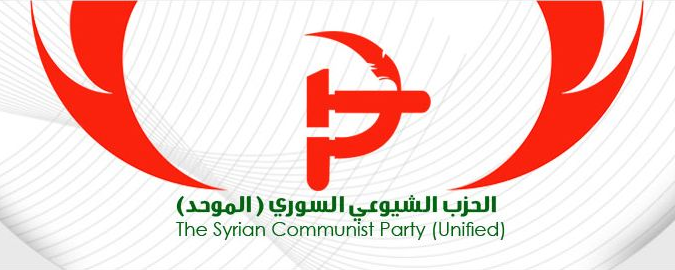
I visited Syria in the latter part of January to see for myself what Syria is like under the new regime. I had something to compare this to as I had visited Syria twice back in 2021, when it was still under the leadership of Bashar al-Assad.
In 2021, Syria was experiencing relative peace due to an uneasy cease-fire agreement between the Assad government and the anti-government forces allowed to continue existing and operating in the northwest province of Idlib under Turkish “protection.”
As I learned in Syria at the time, Syria’s government forces had collected passports from 84 different countries amongst the opposition fighters.
Syria had truly been the target of a world war against it—a war, combined with crippling economic sanctions, to which Syria finally succumbed at the end of 2024.
Syria is now being carved up by Western powers, with Israel taking over huge swaths of land as well as water resources in the south, including Mount Hermon—the highest point in all of the Levant. Israel is now building a military base in the south, while Turkey is building a military base in the north.
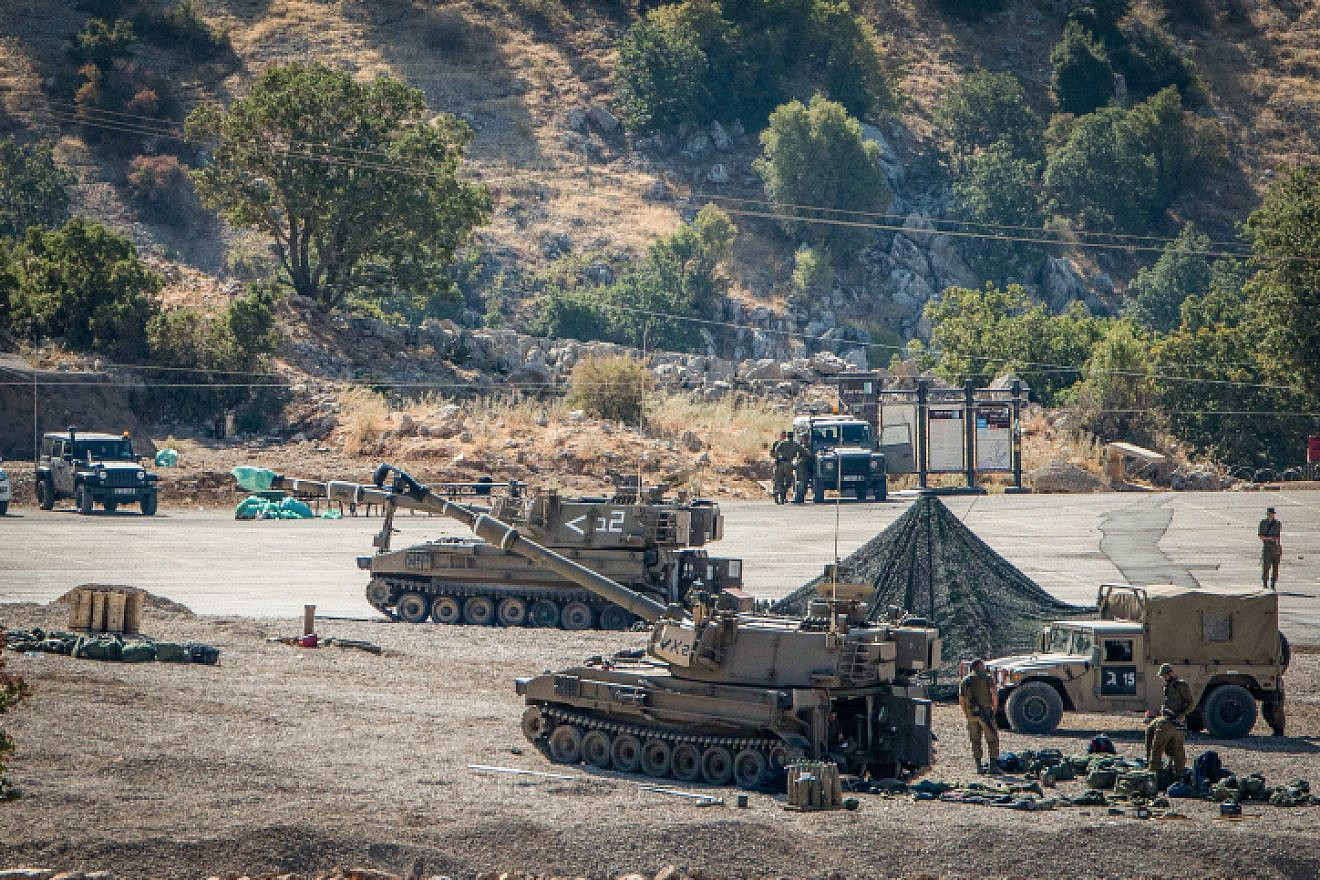
The United States, meanwhile, continues to occupy the oil- and grain-rich northeast. The new HTS regime, too busy massacring religious minorities, has not moved to contest any of these foreign encroachments. And, indeed, the Syrian Interior Ministry has released a new map of Syria which no longer includes the Golan Heights, now occupied by Israel, despite the fact that international law still recognizes this as Syrian territory. This same new map also effectively cedes territory to Turkey in the north.
I met and interviewed a number of people while in Syria. Of course, there was a diversity of opinion as there always will be in such a large and diverse society. Some people are hopeful that things will change for the better now, especially if the economic sanctions are lifted from Syria and the country is allowed to rebuild what was destroyed during the war—the prevention of such reconstruction being an intended goal of the sanctions.
Indeed, almost everyone is unanimous that they are desperate to see the sanctions lifted and for economic life to return to the country. This makes eminent sense.
The entire country remains devastated from the brutal war. The central portion of Damascus, while spared the worst of the damage, is still in bad shape, suffering as it is from dilapidated infrastructure and buildings.
Meanwhile, other towns, like Jobar which I visited, resemble the bombed-out city of Dresden after World War II. A recent report by the RAND Corporation describes the devastation which remains in Syria after the war:
Syria’s infrastructure is so deteriorated that basic services are woefully insufficient for those who are there now—much less for a large influx of returning refugees. A decade and a half of warfare has damaged 23 percent of the total housing stock, especially where the fighting was most intense, and thus where many of the refugees lived. The education system is in shambles, with 2.4 million children not attending classes and heavily damaged school infrastructure. Only slightly more than half of Syria’s hospitals are fully functioning. And in addition to the refugees outside the country, more than 7 million Syrians are internally displaced.
Meanwhile, many others in Syria are not so hopeful for the future under HTS. One Christian cleric I interviewed—an individual who is reluctant to reveal his identity—spoke for a lot of people when he told me, “before, we had a dictatorship; now, we have something worse—a government run by extremists.” He stated that, “in my opinion, the U.S. brought us HTS, and they can take them back.”
His view was that what happened with the HTS takeover of Syria could not be termed a “revolution,” for it was not an organic rising of the people. Rather, it was the triumph of a group funded and supported from the outside of Syria, made up in significant part of foreign fighters and based in only one part of the country—Idlib. This, in short, is not a group which can purport to represent the Syrian people.
This cleric, as a number of others also complained to me, was disturbed how the misdeeds of the Assad government had been exaggerated, or even falsified, to provide post hoc justifications for the takeover by HTS.
The big lie he and others pointed to was that revolving around Sednaya Prison—the main focus of the mainstream press after the fall of Assad. As he and others explained to me, the media made up grotesque falsehoods about the prison—for example, claiming that tools used in the workshop there were in fact instruments of torture.
One individual told me that they in fact knew someone who was imprisoned there—they believed quite wrongly—who was the subject of a campaign under Assad to release him. This person, upon being released, categorically denied that torture was happening in that prison.

I met another individual who is an Alawite living in Damascus. This individual, whom I will call “A” (and refer to as “they” and “their” so as not to reveal their gender), was quite afraid for their safety, and quite reasonably so.
First of all, A’s friend, a university professor, had recently been kidnapped and killed. Tim Anderson, on Twitter, described what happened to this professor:
Free Syria. Body of University Researcher Found After HTS Abduction.
Days after her abduction by HTS, the body of Dr. Rasha Al-Ali was discovered, bearing signs of brutal treatment, including the amputation of her fingers. Dr. Rasha, a respected university researcher and a member of the Arab Writers Union, was a prominent intellectual voice. Her crime…criticism of wearing the Niqab on campus.
Her killing underscores the growing dangers faced by academics and intellectuals in the region, as well as the alarming rise in sectarian and targeted violence. This tragic loss highlights the need for immediate attention to the safety and protection of Syria’s minority and intellectual communities.
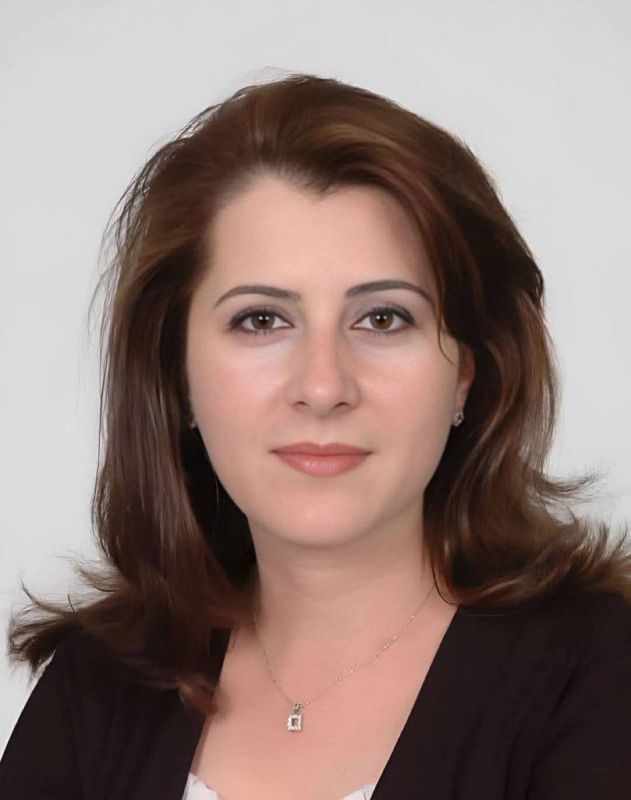
Shortly after this incident, A barely escaped being kidnapped. Thus, A, a university instructor, was asked by a student to meet off-campus. Before this meeting happened, however, other students warned A not to go, explaining that this was a ploy to kidnap A. While A remains in Syria, they are considering leaving the country.
If A flees, they will join others who have already left Syria for fear of the new government, as well as those who have been displaced within the country as a result of the fighting culminating in Assad’s overthrow.
Thus, more than 100,000 Syrians (mostly Shia and members of other minority religious groups) have fled Syria since the fall of Assad, while “[o]ne million more Syrians were internally displaced by the fighting in November and December.” According to A, an entire town—the Alawite town of Alqeen, in the Daraa Province of Syria—just “disappeared” in December after the HTS takeover. According to A, the entire town was depopulated and the whereabouts of the residents are unknown. Meanwhile, despite the claims by the mainstream media that Syrians were flocking back home after the fall of Assad, only 125,000 Syrians have returned since then.
Even as I was writing this article, A wrote to me about another atrocity committed by extremists linked to the new HTS government. Thus, they wrote to me about a 22-year-old woman named Nagam Issa who had been kidnapped in Homs while visiting a clinic for a pregnancy check-up. Her dead body, showing signs of torture, was later found, lying next to the body of another young woman.
The kidnapping and death of Nagam were publicized on Facebook in a post which A sent to me. According to this post, originally written in Arabic, “The primary suspect in the crime of kidnapping Mrs. ‘Nagam Issa’ is one of the terrorists and leaders of the armed sectarian factions belonging to the dirty Golani terrorist called Jassim Abu Moawya from Tklakh in the Homs countryside. This dirty sectarian terrorist continuously abducts and carries out armed attacks upon the people in the surrounding villages either to kill or to intimidate civilians, and he has documented and published these crimes. The last massacre committed by this sectarian savage was days ago….”
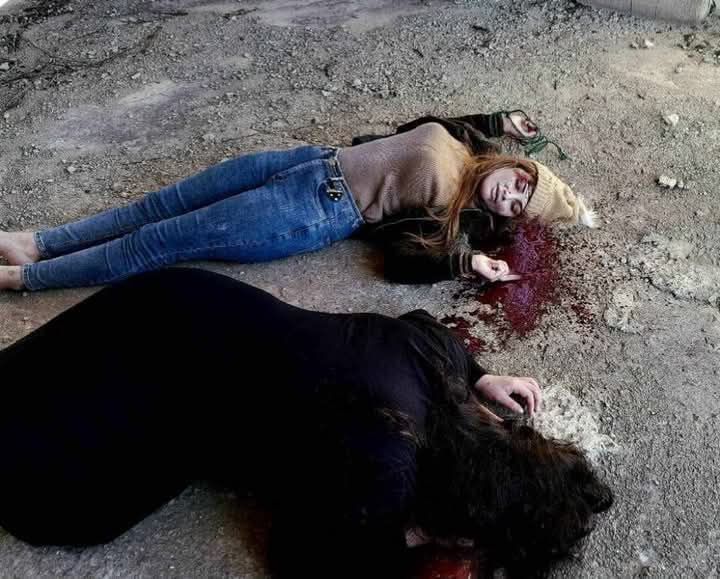
Another town which is not faring well after the HTS takeover is Maaloula—one of the last cities in the world where people still speak Aramaic, the language of Jesus. Maaloula has been home to many Christians and is the site of some of the oldest Christian churches in the world. I visited Maaloula twice back in 2021, and I was awestruck by the beauty and almost story-book nature of this town built into the stone mountains.
I visited Maaloula for a third time on this recent trip to Syria. The first thing which struck me this time was that Maaloula seemed like a ghost town, with no cars on the street and nearly no visitors to the historic churches. This contrasted with my first two trips in when the churches were teeming with pilgrims and the town seemed to be vibrant and full of activity.

Maaloula had been attacked in 2013 by a number of terrorist groups, including the al-Nusra Front—an al-Qaeda affiliate, the predecessor of HTS which was founded and led back then by none other than al-Julani. These terrorists violently assaulted the churches and destroyed ancient religious icons and antiquities, including the tomb of Saint Thecla—the namesake of the historic convent there.
These same terrorists also kidnapped the nuns of the Convent of Saint Thecla. One of the nuns told us of these events in my first trip to the Convent. Ultimately, it was the Syrian Army, with the help of Hezbollah, which drove the terrorists out of Maaloula. The Christian residents of the town now live in fear as some of the same people who terrorized the town are now in charge of the country.
As one priest whom I interviewed there during my most recent trip explained, more than 50 Christian families (out of a total of 325) have fled Maaloula for Damascus since the HTS takeover. Other families have fled Syria altogether.
This priest was uncertain as to whether these families would ever return, given the lack of a sense of security in Maaloula. I talked to one individual who, when they were alone with me for a moment, looked at me, shook their head, and told me that things are terrible in Maaloula now. This individual was obviously reluctant to talk to me in the presence of the other individuals accompanying me. This individual too is trying to get out of Maaloula, and out of Syria altogether.
An article by the Catholic News Agency (CNA) estimates that 80 Christian families (or about a quarter of the total) have fled Maaloula since HTS toppled the Assad government. As this article explained,
A church source, speaking…on condition of anonymity, said that after former President Bashar al-Assad’s regime regained control of Maaloula about 10 years ago, it prohibited some Muslims from entering the town due to their collaboration with the Al-Nusra Front in carrying out killings, kidnappings, and acts of vandalism targeting Christians and their churches. But following the regime’s collapse, these individuals returned to the town, exerting pressure on Christians under the pretext that Christians had displaced them.
“Some of those who had been expelled caused problems, and Christians were viewed as aligned with the previous regime,” the source explained.
As CNA further related, “Regarding the recent attacks on Christians, the source shared that “threats began against five Christian families to seize their agricultural lands. Some Christians were also told to leave their homes and the town or they would face death….These threats turned into action when the home and café of Bashar Shahin and his family were seized, despite some Muslims defending them. After mediation, Bashar was allowed to retrieve his belongings. Additionally, two homes were broken into and robbed. There were other forms of harassment as well, such as gunfire near a priest distributing Christmas gifts to children at a kindergarten, and reports from Christians about being spat on.’”
As CNA further related, Christians in Maaloula have been left defenseless as the new HTS government took away all their weapons after gaining power.

In the end, I left Syria with a feeling of sadness that this once great nation, which has been a veritable tapestry of some of the earliest forms of a number of different religions, was no more.
Like other victims of Western imperialism, Syria seems slated for Balkanization and division along religious and ethnic lines.
As for the ethnic and religious tensions, a few Syrians told me that it used to be that you never knew what religion someone else had practiced or what ethnicity they were, and you would never ask. The only thing that mattered was that they were all Syrians. These same individuals told me that this spirit of pluralism and tolerance is now being lost in the “new” Syria.

CovertAction Magazine is made possible by subscriptions, orders and donations from readers like you.
Blow the Whistle on U.S. Imperialism
Click the whistle and donate
When you donate to CovertAction Magazine, you are supporting investigative journalism. Your contributions go directly to supporting the development, production, editing, and dissemination of the Magazine.
CovertAction Magazine does not receive corporate or government sponsorship. Yet, we hold a steadfast commitment to providing compensation for writers, editorial and technical support. Your support helps facilitate this compensation as well as increase the caliber of this work.
Please make a donation by clicking on the donate logo above and enter the amount and your credit or debit card information.
CovertAction Institute, Inc. (CAI) is a 501(c)(3) non-profit organization and your gift is tax-deductible for federal income purposes. CAI’s tax-exempt ID number is 87-2461683.
We sincerely thank you for your support.
Disclaimer: The contents of this article are the sole responsibility of the author(s). CovertAction Institute, Inc. (CAI), including its Board of Directors (BD), Editorial Board (EB), Advisory Board (AB), staff, volunteers and its projects (including CovertAction Magazine) are not responsible for any inaccurate or incorrect statement in this article. This article also does not necessarily represent the views the BD, the EB, the AB, staff, volunteers, or any members of its projects.
Differing viewpoints: CAM publishes articles with differing viewpoints in an effort to nurture vibrant debate and thoughtful critical analysis. Feel free to comment on the articles in the comment section and/or send your letters to the Editors, which we will publish in the Letters column.
Copyrighted Material: This web site may contain copyrighted material the use of which has not always been specifically authorized by the copyright owner. As a not-for-profit charitable organization incorporated in the State of New York, we are making such material available in an effort to advance the understanding of humanity’s problems and hopefully to help find solutions for those problems. We believe this constitutes a ‘fair use’ of any such copyrighted material as provided for in section 107 of the US Copyright Law. You can read more about ‘fair use’ and US Copyright Law at the Legal Information Institute of Cornell Law School.
Republishing: CovertAction Magazine (CAM) grants permission to cross-post CAM articles on not-for-profit community internet sites as long as the source is acknowledged together with a hyperlink to the original CovertAction Magazine article. Also, kindly let us know at info@CovertActionMagazine.com. For publication of CAM articles in print or other forms including commercial internet sites, contact: info@CovertActionMagazine.com.
By using this site, you agree to these terms above.
About the Author
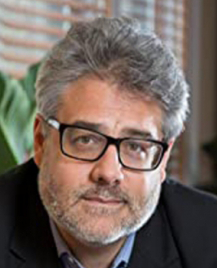
Daniel Kovalik graduated from Columbia University School of Law in 1993. He then served as in-house counsel for the United Steelworkers, AFL-CIO (USW) until 2019.
While with the USW, he worked on Alien Tort Claims Act cases against The Coca-Cola Company, Drummond and Occidental Petroleum—cases arising out of egregious human rights abuses in Colombia.
The Christian Science Monitor, referring to his work defending Colombian unionists under threat of assassination, described Mr. Kovalik as “one of the most prominent defenders of Colombian workers in the United States.”
Mr. Kovalik received the David W. Mills Mentoring Fellowship from Stanford University School of Law and was the recipient of the Project Censored Award for his article exposing the unprecedented killing of trade unionists in Colombia.
He has written extensively on the issue of international human rights and U.S. foreign policy for the Huffington Post and Counterpunch and has lectured throughout the world on these subjects. He is the author of several books including The Plot To Overthrow Venezuela, How The US Is Orchestrating a Coup for Oil, which includes a Foreword by Oliver Stone; The Plot to Attack Iran: How the CIA and the Deep State Have Conspired to Vilify Iran; and with Jeremy Kuzmarov, Syria: Anatomy of a Regime Change.
Daniel can be reached at dkovalik@outlook.com.

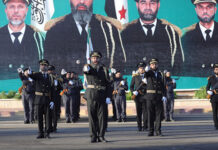
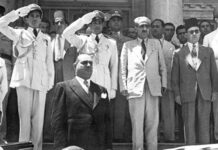
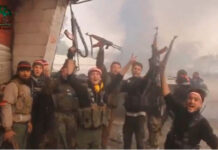

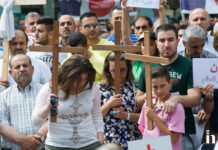
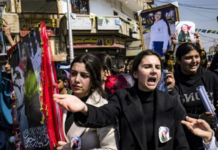


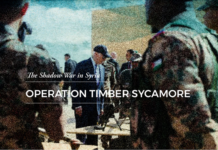

Never-ending atrocities after atrocities, modus operandi of US and its vassal terrorist groups, factually portrayed. Thank you once again Daniel. And brave of you to return to terrorized Syria. If only what you know could be shared in some mass media.
I hope you can get this account to Gabbard.